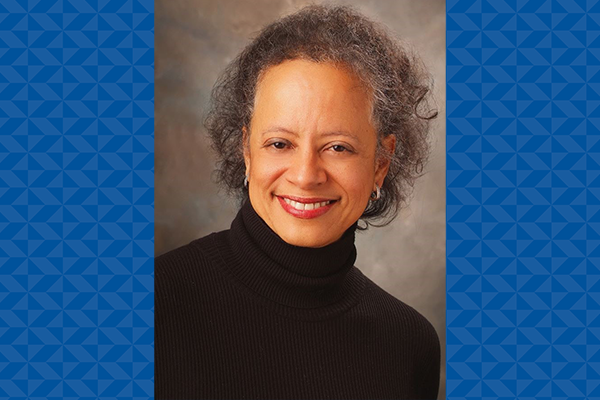
Changing the Status Quo
Lori J. Pierce, MD’85
Radiation Oncologist
Professor and Vice Provost for Academic and Faculty Affairs, University of Michigan
Past President, American Society of Clinical Oncology
Board Chair, Association of Clinical Oncology
What is your current research focus?
For a number of years, I’ve focused on radiation sensitivity. I treat breast cancer, and certain types of breast cancers are aggressive and don’t respond well to radiation. So my focus has been looking at agents that can be combined with radiation that can increase the sensitivity of the tumor to radiation. We also have focused on developing molecular profiles that can predict sensitivity to radiation. And then the final area is directing a statewide consortium whose purpose is to improve the quality, efficiency, and cost effectiveness of radiation delivery for breast cancer, lung cancer, prostate cancer, and treatment delivered for bone metastasis. It’s a very rewarding portfolio. Why did you choose Duke for medical school?I wanted to go to Duke because of its excellence and the fact Duke had that research year. If you survived your first year, you then did your clinical rotations in your second year, and you could spend your entire third year on research. I wanted that, and not many medical schools offered it.
How did Duke influence your career?
Duke changed my life. I had always planned to go into diagnostic radiology. When I got to my third year, Dr. Leonard Prosnitz, who was the chair of radiation oncology, said, “Why don’t you come down to the clinic and see what we do?” And that changed my entire career. Radiology is a wonderful profession, but I discovered that I loved interacting with patients. That’s what switched me to radiation oncology, and I never looked back. Duke changed everything.
Where do you see your field in 5-10 years?
Our field is clearly moving toward increasingly individualized care. One size does not fit all. There are so many different phenotypes of breast cancer, some far more aggressive than others, and we are increasingly able to look at the biology and genetic characteristics of each tumor and individualize how we treat each patient based upon that. We’re getting better at knowing when more aggressive treatment is needed and when you can give less and still have good outcomes. I think that’s clearly where we’re headed.
You’ve spoken of the difference between “equality” of care and “equity” of care. What do you mean by that distinction?
It’s a very important distinction. Equality means everyone gets the same care. That sounds great, but it’s only great for everyone if everyone is starting at the same point. And we know that is clearly not the case. There are so many disparities in terms of access, social determinants of health, and other factors.
Equity is where you look at where each person is and give them what they need so that everybody has an equal outcome.
There’s an analogy I like that illustrates the difference: two men are trying to look over a fence at a baseball game, but one man is tall and can see over the fence, and the other is short and can’t. If you give them both stools that are the same height, the tall man can still see over the fence and the short man still can’t. That’s equality: you’ve treated them the same, but you haven’t changed the outcome. With equity, the short man gets a taller stool, so they can both see over the fence.
Equity means giving people what they need to have an equal outcome. That’s what we need to work toward in cancer care. To achieve that, we need to listen more, increase communication, look honestly at our own processes, and be willing to change the status quo.
Read About Other Alumni Making a Difference
in Cancer Research and Care:
Treating the Whole Person: Arif Kamal, MD, HS’12, MHS’15
Targeting the Seeds of Cancer Growth: Eugenie S. Kleinerman, MD’75, HS’75
A Discovery That Comes Out of Nowhere: Bill Kaelin, BS’79, MD’82
Story originally published in DukeMed Alumni News, Fall 2022.
Read more from DukeMed Alumni News